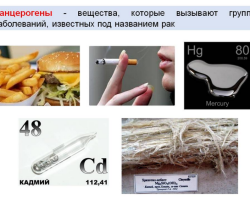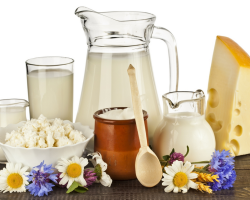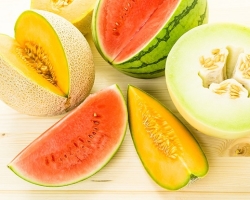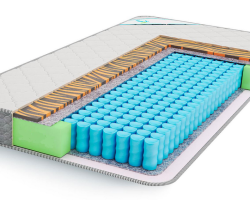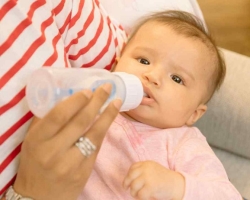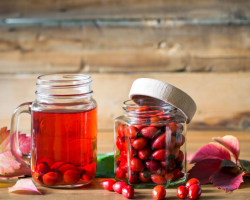The causes of regulations and hiccups in newborns. What to do with abundant or unusual regurgitation, hiccups.
Content
- Why does a newborn child register after feeding? The reasons
- Should a child dig? Until how many years old children spray?
- Why does the child sprinkle a fountain?
- Why does the child and often register after each feeding?
- The child brings up his nose
- The child spits up with curdled curled milk
- The child brings up the mucus
- The child bent with blood
- The child spits brown
- The child banged the bile, yellow
- Why does the child sprinkle in a dream?
- Why does the child sprinkle and immediately hiccup?
- Video: Dr. Komarovsky about regurgents of newborns -
- Is it normal that the child often hiccups in the stomach?
- Why does the child hiccup when he laughs after laughter?
- The child regains and hiccups: tips and reviews
- Video: hiccups and itching - urgent help
The first months after the birth of the baby are filled with joy and anxiety at the same time. Young parents themselves have not yet come to their senses after the appearance of a new member of their family, and here it is still important not to miss any alarming symptoms from the baby.
Most of all mothers and dads are worried about regurgitation and periodic hiccups in a child. Let's figure out what processes are the norm, and when you need to run to the doctor.
Why does a newborn child register after feeding? The reasons
- Breakfasting of the stomach. Frequent application to the breast, such fashionable feeding on the first requirement are the causes of overfeeding. So children eat more than they can fit in their stomach. The baby will definitely bite extra food
- Fast sucking. If the baby pulls food with the power of a vacuum cleaner, most likely he is swallowed not only in milk or a mixture, but also of air. The wrong position of the bottle or improper application to the chest also leads to swallowing air. That is why after feeding it is recommended to blame a child for about 20 minutes in an upright position so that excess air comes out with a belch. Sometimes several milliliters of food can be added to the air, this is absolutely normal
- The structure of the stomach. In older children and in adults, a sphincter has a sphincter at the junction of the stomach and esophagus, which reliably holds eaten food inside. In newborn children, this sphincter has not yet been formed, so food can be thrown back into the esophagus even when the child’s body position changes
- Gas formation in the intestine. The pressure of the gas bubbles in the intestines on the stomach provokes food pushing back
- Overexcitation of the nervous system. Sometimes the cause of frequent regurgitation is the increased activity of the nervous system of the child. This problem needs to be addressed to a neurologist, he will definitely establish the cause and prescribe adequate treatment
Should a child dig? Until how many years old children spray?
- Brighting is a normal physiological process in a newborn that protects the child from overeating. 80% of children register, and this process does not cause them any discomfort
- Brighting always occurs suddenly and without visible work of the abdominal muscles. It is considered the norm if the child regresses the excess food to 7-9 months. At this age, a muscle valve is formed between the esophagus and the stomach and regurgitation stops
- If the child brings up no later than an hour after eating, feels good, not crying and normally adds in weight, then spitting should not bother you
Why does the child sprinkle a fountain?
Bringing with a fountain once a day up to 50 ml is a variant of the norm. But if this is repeated often and abundantly, it bothers the child or he does not gain weight - it is better to consult a doctor.
Brighting with a fountain can provoke ordinary overfeeding or bloating. But there are more serious reasons.
- The digestive process failure. Here it is worth paying attention to the quality of the food of the newborn. If he is on breastfeeding, carefully review the mother’s diet, suddenly she ate something not very healthy. With artificial feeding, the cause of spitting a fountain may be a mixture. Therefore, you can not buy a children's mixture itself, but only after a conversation with a pediatrician
- The disease of the nervous system. In this case, a neuropathologist cannot do without examination
- Pathology of the gastrointestinal tract. A child may have congenital gastrointestinal abnormalities or staphylococcal infection. A gastroenterologist, endocrinologist and pediatrician should examine the baby. Some states are eliminated drugs, and in particularly difficult cases, you will have to resort to the help of surgeons
Why does the child and often register after each feeding?
Weakened and premature children, babies with intrauterine disorders suffer from regurgitation to a greater extent. If the child brings up a lot and often, it must be observed by the precinct pediatrician.
Very strictly follow the increase in the baby's weight. If, with abundant regulations, the child normally gains weight, then all deviations in the process of digesting food will pass with age. If there is no increase, you will have to examine the child in detail to establish and eliminate the cause of the violations.
The child brings up his nose
If many mothers are calm about tearing through their mouths, then the nose register forces them to worry and panic. If the child sometimes regains through the nose in your presence - this is normal, you should not be scared. But frequent regurgitation of the nose must try to stop.
Firstly, it is unsafe if the nasal moves of the newborn can suffocate.
Secondly, the sour contents of the stomach irritates the nasal mucosa. Constant irritation can further cause polyps in the nose or adenoid growth.
How to minimize the discharge through the nose:
- follow the position of the baby during feeding
- correctly give him a chest or bottle
- do not put the child horizontally. The chest and head should be slightly above the rest of the body
The child spits up with curdled curled milk
Curtained milk means that the baby’s stomach has already begun to shake food. If, 30-40 minutes after eating, the child regresses the curd mass, this is considered a variant of the norm. It is worth consulting a doctor if this happens often in the intervals between feedings.
The child brings up the mucus
In the first days after childbirth, the child can spit mucus. This mucus has accumulated in his stomach back in the mother’s womb, and by regurgitation, the baby gets rid of it.
If the child is cut tooths, his saliva is increasing. The baby swallows it, and then can burst back. Often, mucus when regurgitation also appears during a runny nose and colds. Sopels flow through the esophagus in the stomach, and then returned back in the form of regurgitation.
But not all the causes of mucus are so harmless. Brighting with mucus may be a symptom of gastrointestinal inflammation and infectious diseases.
The child bent with blood
- Most often, the cause of the presence of blood in regurgitation is the cracks of the nipples in the mother. During sucking, the baby swallows milk with blood. In this case, doctors recommend using special silicone breast lining
- If your chest is in order or a baby on artificial feeding - be sure to consult a doctor. The doctor will establish why your baby burst with blood. Perhaps he just burst some kind of vessel in the nasopharynx
- If you see that the child is turbulent, and even tears blood, urgently call an ambulance or go to the hospital yourself. Only in the hospital they will be able to establish the presence of any violations of the digestive tract in the baby and take the necessary measures
 The child spits brown
The child spits brown
The brown color in regurgitation means that the baby had blood in the stomach, which reaction either with milk or with gastric juice. To find out where the blood came from, consult a doctor.
The child banged the bile, yellow
One -time regurgitation with yellow should not bother parents. But repeated regurgitation of yellow is an alarming signal. Yellow color gives bile to milk.
The presence of bile speaks of the failure of the digestive process. In this case, be sure to contact a pediatrician, and he will direct you to narrow specialists for examination. After all, the presence of bile can be a symptom of serious gastrointestinal anomalies.
 Why does the child sprinkle in a dream?
Why does the child sprinkle in a dream?
Infuships in a dream only say that the baby did not bite all the superfluous before bedtime. Maybe you did not hold it vertically, but immediately put it to sleep, or normal regurgitation did not occur for any other reason.
If the child does not bother anything, he bursts and sleeps further calmly, you should not worry about it. The main thing is to ensure that the baby sleeps on his side, this will allow milk to leak from his mouth, and you will be sure that the child will not choke.
 Why does the child sprinkle and immediately hiccup?
Why does the child sprinkle and immediately hiccup?
If the causes of regurgitation became overfing or flatulence, it is likely that after regurgitation, the child begins to hiccup. The hiccups do not cause any discomfort to the newborn.
To stop hiccuping, let the baby drink or put it to the chest for a while. But just so as not to overfeed again!
 Video: Dr. Komarovsky about regurgents of newborns -
Video: Dr. Komarovsky about regurgents of newborns -
Is it normal that the child often hiccups in the stomach?
The kids begin to hiccup in the stomach of the mother. And this is normal. The cause of such a hiccup is a swallowing of an amniotic fluid.
The baby’s hiccups in the later stages of pregnancy do not harm the child. So the baby develops a diaphragm, trains to independently digest food and breathe.
Why does the child hiccup when he laughs after laughter?
The main reason for the frequent hiccups in young children is the immaturity of the respiratory system, the digestive tract and the nervous system. During a sharp breath or exhalation, when overfed in the body, a pushing nerve may occur.
The vagus nerve connects many internal organs to the central nervous system, it is located in the chest and abdominal cavities. To free the vagus nerve, the diaphragm begins to decrease intensively - this is hiccups.
The older the child becomes, the less often he hits after laughter.
Already in primary school age, children stop hiccuping during and after laughter.
The child regains and hiccups: tips and reviews
- For the prevention of regulations, experienced mothers advise holding the baby with a column after each feeding, and during wakefulness, lay it on the tummy more often
- Another useful advice on how to get rid of overfeeding. In children-articulations, the hole in the nipple should be small, let the nipple be fully filled with milk. So the baby himself will be able to regulate the amount of eaten
- When breastfeeding, to avoid overfeeding, you can spit a little anterior milk before feeding. It has little nutritional value, and the place in the stomach takes enough
But the experience of some mothers to get rid of hiccups:
Svetlana: “I just let my daughter drink a little. While I was small, I put it to my chest, and the elder already gave water. It did not always help, but she did not suffer from hiccups "
Lena: “My child is constantly hiccup after laughter. I let him chew a teaspoon of sugar-sand. Naturally, he was already a year and a half then. Harmless way, learned from my grandmother "
Olya: “As soon as his son began to hiccup, we immediately did a relaxing charge. They stretched, breathed slowly and deeply. It seemed to help. "

















